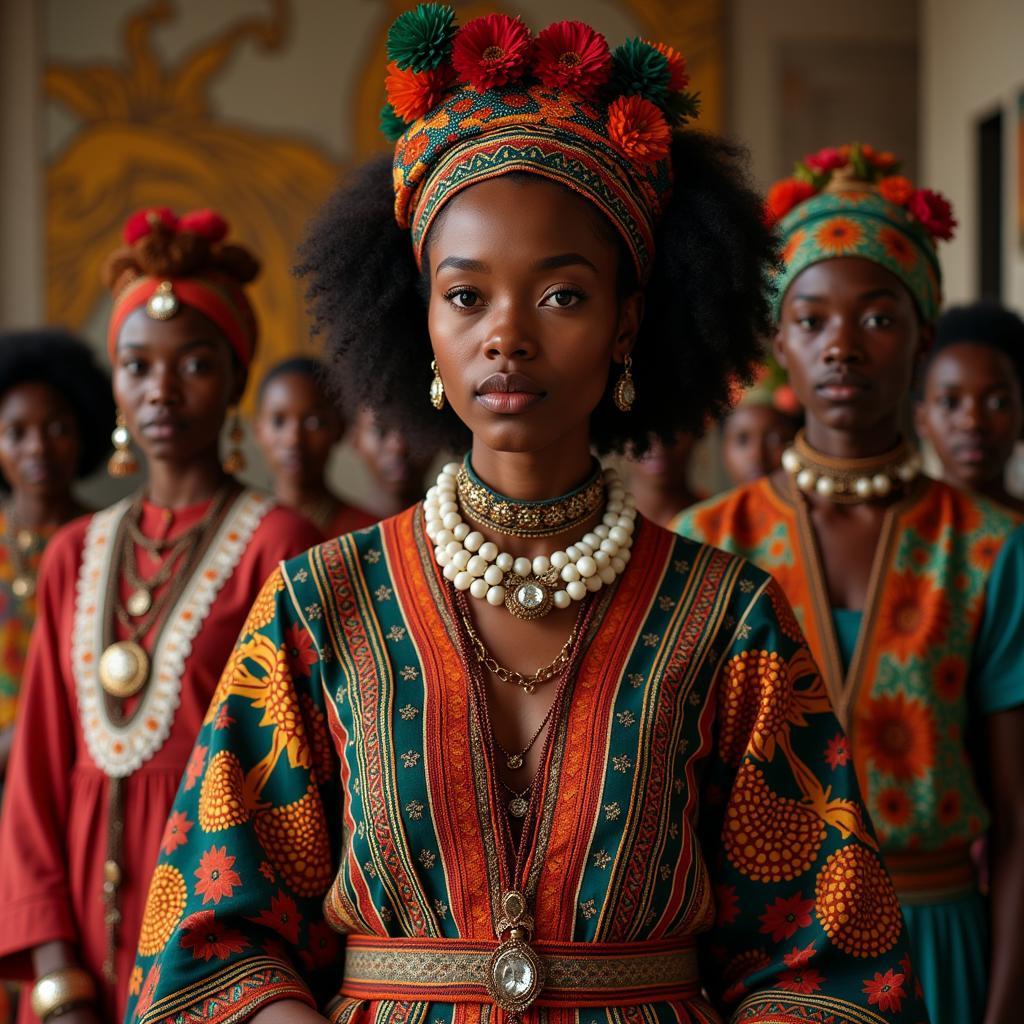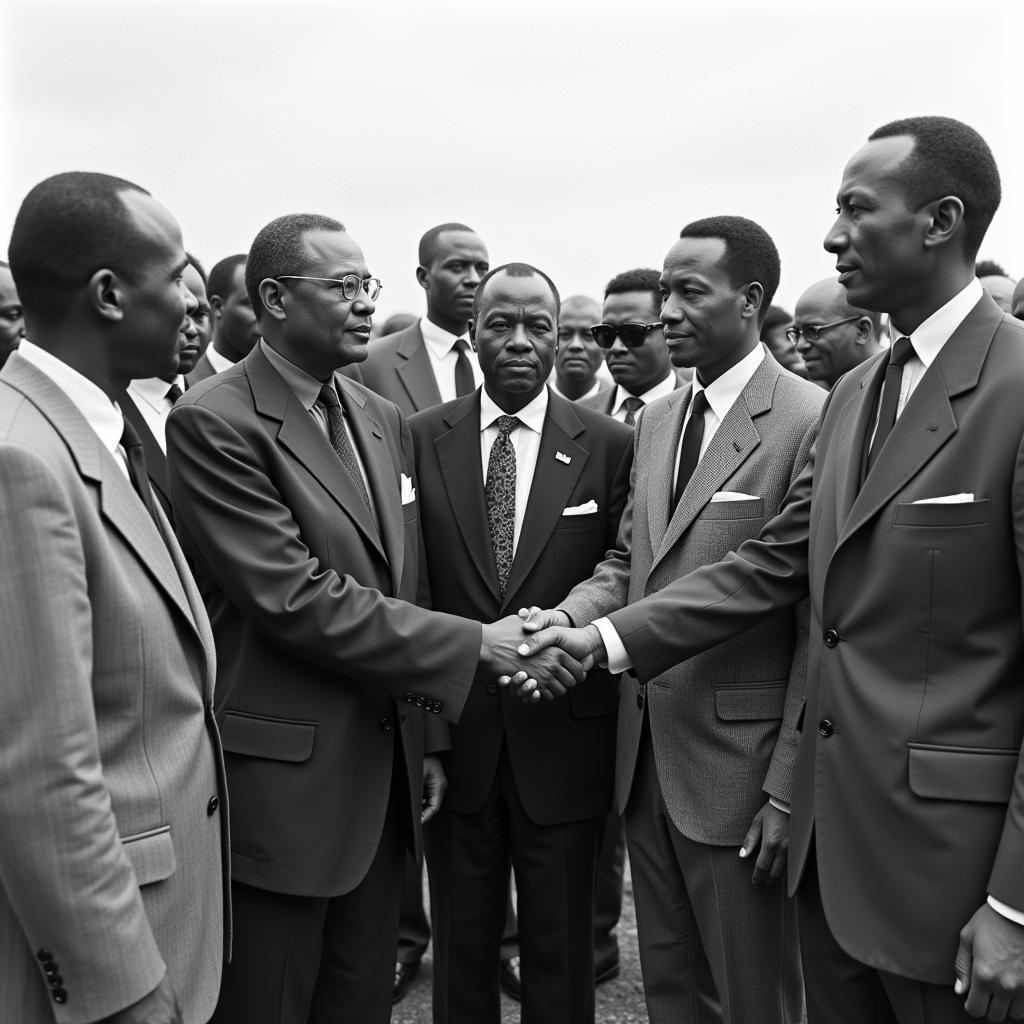Exploring the Rich Tapestry of African English Poets
African English Poets offer a vibrant and diverse literary landscape, reflecting the continent’s rich history, cultures, and struggles. From the poignant verses of Chinua Achebe to the evocative imagery of Ben Okri, these poets weave narratives that resonate globally. Their works explore themes of colonialism, identity, liberation, and the complexities of the African experience, often employing unique linguistic styles that blend English with indigenous languages and rhythms.
African English poetry truly blossomed in the mid-20th century, coinciding with the wave of independence movements sweeping across the continent. This period witnessed a surge in literary expression as African writers began reclaiming their narratives and forging a new literary identity. Poets like Christopher Okigbo of Nigeria and Dennis Brutus of South Africa used their craft to challenge colonial power structures and give voice to the aspirations of a newly liberated Africa. Their poems became anthems of resistance and symbols of hope for a brighter future. You can find more about African English poetry online.
The Pioneers of African English Poetry
The early pioneers of African English poetry laid the groundwork for future generations. They grappled with the complexities of expressing African experiences through a language imposed by colonialism. One such pioneer was Leopold Senghor, Senegal’s first president and a renowned poet. His concept of “Negritude” celebrated the richness of African culture and identity, challenging the Eurocentric perspectives that dominated the literary world.
Another influential figure was Wole Soyinka, the first African to win the Nobel Prize in Literature. His plays, poems, and essays addressed themes of political corruption, social injustice, and the enduring power of Yoruba mythology. Soyinka’s work exemplifies the power of literature to critique power and inspire change.
Diverse Voices and Styles Across the Continent
African English poets represent a multitude of voices and styles. From the lyrical verses of Kofi Awoonor of Ghana to the politically charged poetry of Jack Mapanje of Malawi, the diversity within African English literature is immense. These poets explore a wide range of themes, from the personal and introspective to the societal and political.
East African poets like Ngugi wa Thiong’o have advocated for writing in indigenous languages, arguing that it is essential for preserving cultural identity and decolonizing the mind. While initially writing in English, Ngugi later transitioned to his native Gikuyu, demonstrating his commitment to promoting African languages as vehicles for literary expression.
How has African English Poetry Evolved?
African English poetry has continued to evolve, adapting to changing social and political landscapes. Contemporary poets like Warsan Shire and Koleka Putuma are pushing the boundaries of form and content, exploring themes of gender, sexuality, and migration with unflinching honesty. Their work often reflects the experiences of a younger generation grappling with globalization and the complexities of identity in a rapidly changing world.
One notable trend is the increasing use of digital platforms for sharing and disseminating poetry. Social media and online literary magazines have provided new avenues for African English poets to connect with audiences globally. These platforms have also fostered a sense of community among poets, allowing them to share their work, collaborate on projects, and engage in critical discussions about the future of African literature. If you’re interested in exploring literature from across the diaspora, check out our page on the African American Poet Laureate.
Who are Some Notable Contemporary African English Poets?
Contemporary African English poets continue to enrich the literary landscape with their powerful and evocative voices. Poets like Ladan Osman, Clifton Gachagua, and Safia Elhillo are exploring new forms of expression, blending traditional storytelling techniques with contemporary themes. Their work reflects the ongoing evolution of African English literature, as it continues to grapple with questions of identity, belonging, and the search for meaning in a complex and ever-changing world. The African bookshop can offer a wide selection of their works. Explore examples of African American Vernacular English to appreciate the breadth of linguistic expression within the African diaspora.
Conclusion
African English poets have carved a unique space within the global literary landscape. Their works, spanning generations and encompassing a vast array of styles and themes, offer a powerful lens through which to understand the complexities of the African experience. From the pioneering voices of the past to the innovative expressions of the present, African English poetry continues to inspire, challenge, and captivate readers worldwide. These poets, through their words, build bridges of understanding and celebrate the rich tapestry of human experience. Explore 19th-century African American poets for a historical perspective on poetic expression.
FAQ
- What is Negritude?
- Who was the first African to win the Nobel Prize in Literature?
- Why do some African writers choose to write in indigenous languages?
- How has social media impacted African English poetry?
- Who are some prominent contemporary African English poets?
- Where can I find resources on African English poetry?
- What is the significance of oral tradition in African English poetry?
For further reading on this topic, check out our article on African English poetry.
Need support? Contact us 24/7: Phone: +255768904061, Email: [email protected] or visit us at Mbarali DC Mawindi, Kangaga, Tanzania.


